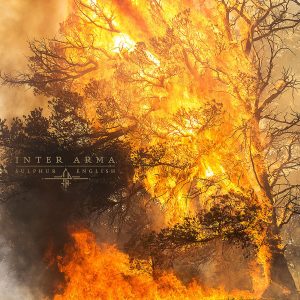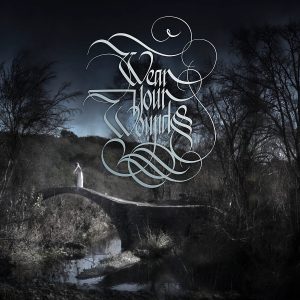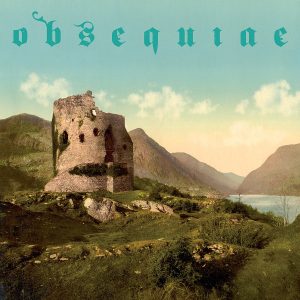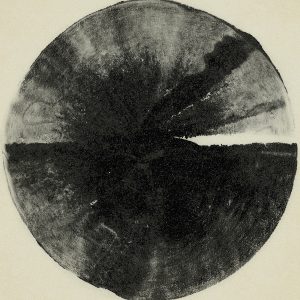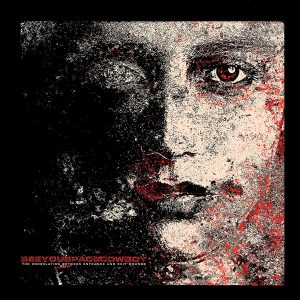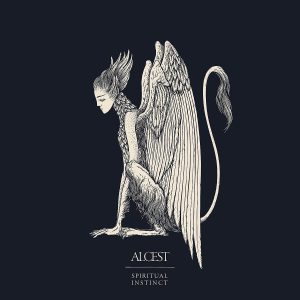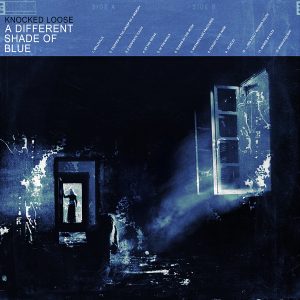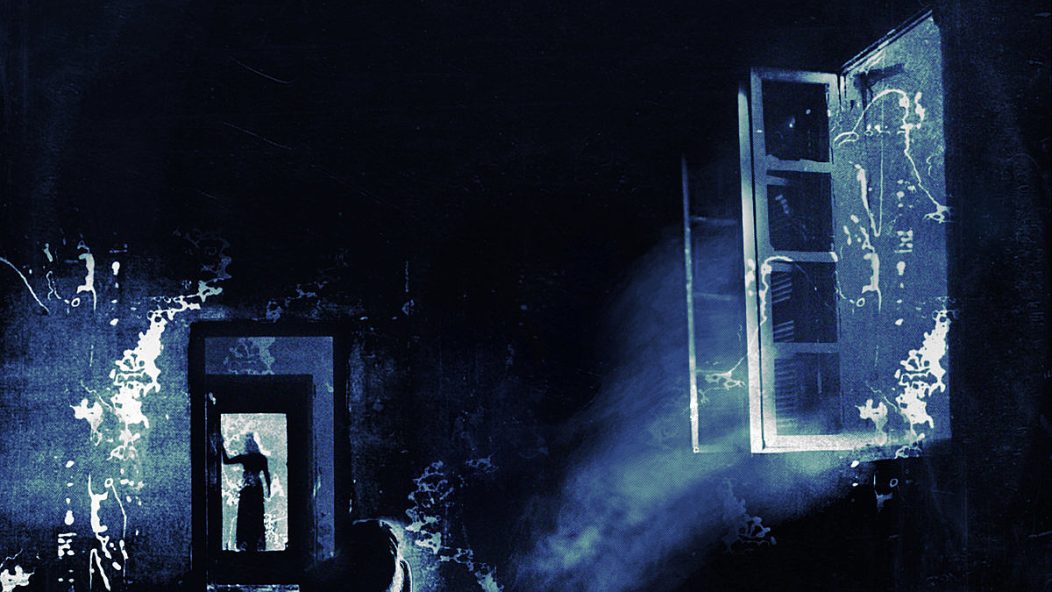
Andrew Sacher's Top Metal Albums of 2019
…
Like basically every year, 2019 has been a great year all across the spectrum of heavy music. As my list below argues, there’s been great new bands, already-promising bands reaching even fuller potentials, and some genuinely vital new works from long-established bands. The metalcore resurgence that had been bubbling up really started to explode this year, and I’ve got a few of those albums on my list, alongside some favorites from black metal, hardcore-leaning death metal, post-metal, grind, doom, sludgy rock, and some stuff that’s tough to categorize. One thing I’d like to point out is I didn’t include the new Tool album, which is one of my favorites of the year, because they really aren’t a metal band at this point and also because they’ve been a household name for like two decades and I’m sure nobody reading this list needs to read any more about it. I’d rather save the space on this limited-to-20 list to shoutout something more overlooked (woohoo Devil Master coming in at #20!). With that said, read on for my list and see you next year!
…
Honorable Mentions
Devil Master – Satan Spits on Children of Light (Relapse Records, United States)
BIG|BRAVE – A Gaze Among Them (Southern Lord Records, Canada)
Fuming Mouth – The Grand Descent (Triple B, United States)
Ithaca – The Language of Injury (Holy Roar, United Kingdom)
Noisem – Cease to Exist (20 Buck Spin, United States)
Gatecreeper – Deserted (Relapse, United States)
Helms Alee – Noctiluca (Sargent House, United States)
Torche – Admission (Relapse Records, United States)
Crypt Sermon – The Ruins of Fading Light (Dark Descent Records, United States)
No One Knows What The Dead Think – No One Knows What The Dead Think (Willowtip, United States)
…
Inter Arma have turned into such a beast of their own over the past decade. Each album has excited me more than the last, and each album has furthered Inter Arma down the path to singularity. They continue to trek through various styles of music (sludge, death, black, prog, post-, and Swans/Neurosis-style folk), but each album brings them closer to capturing one distinct vibe, even as they genre hop. Sulphur English pulls this off with tact and expertise. With several long songs and an air of desperation flowing through this album, it’s not something I was inclined to listen to often throughout the year, but every time I did put it on it blew me away all over again.
Converge frontman J Bannon’s first Wear Your Wounds album was a promising exploration of his mellower side, but in the two years since then, WYW — which also includes Mike McKenzie (The Red Chord), Adam McGrath (Cave In), Sean Martin (Twitching Tongues, ex-Hatebreed), and Chris Maggio (ex-Trap Them) — really started to gel as a band of their own, rather than the backing band for a solo project, and that all comes through on their excellent sophomore album Rust On the Gates of Heaven. On this album, Wear Your Wounds are too vital to be pegged as a “Converge side project” and too musically varied to be pigeonholed. It’s still a more mellow project than Converge, but the heavy parts are really fucking heavy, and the bluesy, classic rock-style solos on this one are an especially nice touch. Rust isn’t the first time that J Bannon has pursued a balancing act between heavy and soft music, but it just might be his most fully realized undertaking of one.
I’m a sucker for harsh, extreme music with bright, catchy guitar melodies, and Obsequiae’s third album The Palms of Sorrowed Kings has that in spades. The general Obsequiae formula is the same, but even more so than on the band’s first two albums, Tanner Anderson has written enough earworm riffs for The Palms of Sorrowed Kings to sustain an entire career. Sometimes riffs this shredding yet hummable pop up two or three times on a band’s album, but The Palms of Sorrowed Kings has them on almost every song. It’s an almost-nonstop adrenaline rush, broken up only by a few gorgeous harp interludes, and it’s got the sharpest production of any Obsequiae album yet. Aria of Vernal Tombs was the album where Obsequiae really started hitting their stride, but this one blows it out of the water.
I didn’t expect this from Cult of Luna. Once they decided to slow things down career-wise a few years ago, it seemed like they were ready to settle into old age as a band and admit that their glory days were behind them. Then came the collaborative album with Julie Christmas, which was one of my favorites of 2016, but which saw Johannes Persson handing the spotlight over to an outside collaborator, so it still suggested “Cult of Luna is moving on” more than “Cult of Luna is back.” Well, on A Dawn to Fear, Cult of Luna is back. This album is classic Cult of Luna, but it feels very of the moment and not at all like a retread. And they sound totally revitalized. Post-metal remains a crowded genre, but this album nailed the middle ground between heavy, atmospheric, and beautiful more effectively than anything else I heard in 2019.
On their first proper full-length album, the leaders of the “sasscore” revival defy easy pigeonholing and transcend revivalism. The Correlation Between Entrance and Exit Wounds still has plenty of signifiers of the white belt era — sometimes to the point where I can’t believe new music like this exists in 2019 — but SeeYouSpaceCowboy have figured out how to repurpose these nostalgic elements into something that sounds like the future. Amongst a sea of bands that sound content to position themselves within a pre-existing genre, SYSC are the opposite. They dabble in hardcore, metalcore, screamo, emo, post-rock, and beyond, and they sound like they’re ready to take over the world. I have a feeling that we’re only just beginning to see this band’s potential, and I think we’re all in for a wild ride.
To echo something I wrote above in the Inter Arma blurb, this taxing, emotionally devastating album is not something I was able to listen to often, but every time I expose myself to its brilliance and power, I’m floored. Blood-curling screams, noise/industrial soundscapes, theatricality, and brutally honest lyricism come together on Caligula to create a work of art so unflinching and confrontational, it makes some of the year’s best black and death metal albums sound downright feeble in comparison. Metal is often obsessed with horror and fantasy, but Caligula — which serves as a vicious takedown of sexual abuse — reminds you that real life is scarier than anything they come up with in the movies.
Neige took his unique blend of black metal and shoegaze to a logical conclusion by 2010’s Écailles de lune, and as he watched Deafheaven and a bunch of other bands further popularize his formula throughout the past decade, his own material never quite managed to hit those same heights. So it is no minor accomplishment that, at the tail-end of the decade, he returned with the best Alcest album since Écailles de lune. Even on Alcest’s classic albums, the shoegaze and black metal elements blended like oil and vinegar, always needing to be shaken back up, but on Spiritual Instinct, they dissolve right into each other. On one end of the album’s musical spectrum, there’s “Sapphire,” possibly the most immediate Alcest song to date but one that still carries the weight of metal, and on the other, there’s “Protection,” one of the most straight-up heavy Alcest songs to date but still melodic and angelic. And then the rest of Spiritual Instinct occupies a very appealing middle ground. It took Alcest some time to get there, but this is how you take a sound you yourself pioneered and push it forward yet again.
Music is cyclical, and since it’s been about 20 years since metalcore started to infiltrate the mainstream, it makes sense that the genre is now in the midst of a resurgence. And as with most once-underground genres that got a taste of mainstream success, some of the new bands are acting as a corrective of sorts, tapping in to the best parts of classic metalcore and working to leave behind the cheesy elements it acquired as it grew. Enter Knocked Loose, whose sophomore album A Different Shade of Blue is the first masterpiece of the metalcore resurgence. Unlike the mallcore bands who dominated the genre in the early 2000s, Knocked Loose sound legitimately fucking scary. Like the popular 2000s metalcore bands, Knocked Loose know that good production and scream-along one-liners can go a long way, and like the earlier ’90s metalcore bands, Knocked Loose pledge their allegiance to Slayer riffs. There’s an atmosphere and a darkness to A Different Shade of Blue that make Knocked Loose sound more menacing than a lot of their peers, and they also know how to sound accessible without sacrificing their sheer force. With high-pitched lead screamer Bryan Garris and low-pitched backup growler Isaac Hale handling the bulk of the vocals, the closest thing to “clean” is when Every Time I Die’s Keith Buckley shows up to shout Hot Damn! style on “Forget Your Name.” Still, A Different Shade of Blue is full of parts that can nearly be described as “catchy.” And Knocked Loose do more than keep the flame burning for a long-established genre; they bring something new to the table as well. As we saw happen this decade with Power Trip’s Nightmare Logic for thrash, or Pallbearer’s Foundations of Burden for doom, I can see A Different Shade of Blue being talked about right alongside the albums that influenced it.
The seeds were there on Brutus’ solid, promising 2017 debut Burst, but with this year’s Nest, the Belgian trio became one of the most exciting new bands in heavy music. I mentioned genre-hopping when discussing a few of the previous albums on this list, but with Nest, I truly can’t pin Brutus down. Are they punk? Metal? Post-hardcore? Post-rock? All or none of the above? I really don’t know. They dabble in all of those genres, and they remind me of a handful of different bands throughout Nest, but overall, I really feel like they’re onto something new. Maybe they’ll start a new trend and there will be a name for this one day, or maybe they’ll forever be one of those super unique bands that you can never fully categorize. Either way, Nest is an album I can’t recommend enough. The songs are loud, uninhibited, inventive, and packed with great hooks. At their core, these songs are catchy enough for rock radio, but Brutus’ arrangements and instrumentation add an artful edge that you rarely hear in mainstream rock. Stefanie Mannaerts, who’s the band’s powerhouse singer and beastly drummer, is the immediate star, but Brutus are one of those bands where every member is talented and crucial. Her longtime collaborator Stijn Vanhoegaerden (who played with her in the garage rock band Starfucker before Brutus formed) creates intricate walls of sound with just one guitar, and bassist Peter Mulders adds a thunderous low end that often brings Brutus into post-metal territory. We need more smart, skillful, heavy bands who write stadium-sized songs like this. We need more bands like Brutus.
Niche music is necessary, but truly great bands know how to take influence from various niches and spit them back out in a way that transcends genre. For example, we know that Sonic Youth were into hardcore punk as much as they were into Glenn Branca’s avant-garde compositions, and their ability to channel those two things (and lots of other stuff) at once is a big part of what made them such a transcendent band. Dallas collective Dead To A Dying World are that kind of band. Their third album Elegy takes tornadic black metal, roaring sludge metal, string-laden Godspeed You! Black Emperor-esque post-rock climaxes, Swans-like dark folk, and more, and combines it all in a way that feels overwhelmingly natural. (And it features Swans contributors Jarboe and Thor Harris, as well as a host of other guest musicians.) Elegy is like the Swiss Army knife of modern heavy/dark music; it’s like, why do just one thing when I could serve all kinds of purposes and be just as convenient? I’m probably being a little hyperbolic, but this album filled a void for me that I always sorta knew existed — it’s been my favorite metal album of 2019 since the day I first heard it and nothing ever threatened to change that. And DTADW aren’t just jacks of all trades; they’ve got the songs too. Elegy has some of the most beautiful, memorable melodies I’ve heard on any album this year, in any genre. It’s heady, cerebral music and fun to listen to. It’s really something special.
